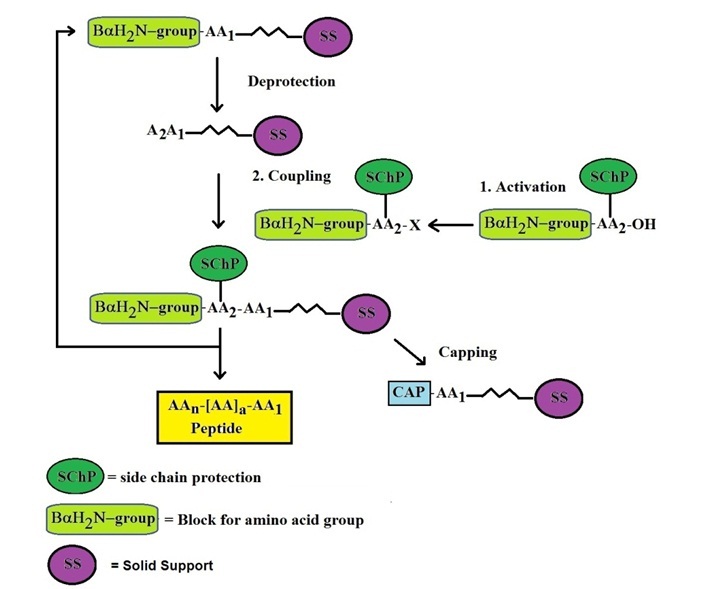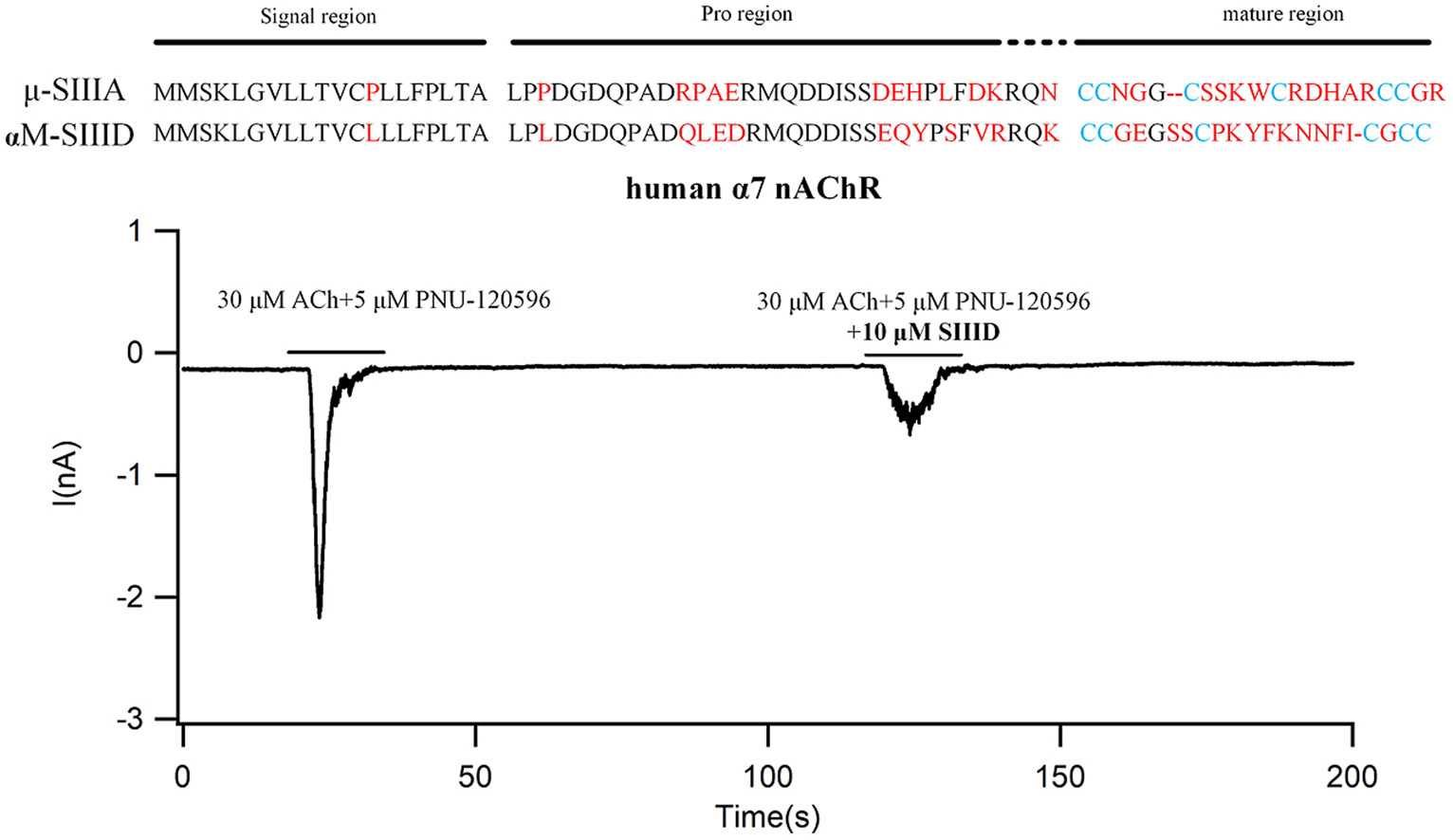Solid-Phase Polypeptide Synthesis Service
- Cutting-Edge Equipment: Advanced peptide synthesizers and HPLC systems ensure accuracy and efficiency.
- Tailored Solutions: Customized synthesis plans address diverse research and application goals.
- Optimized Processes: Automated workflows and stringent quality control deliver reliable, cost-effective products.
- Expert Support: A skilled team of scientists provides comprehensive technical guidance to support research success.
Solid-Phase polypeptide synthesis is a stepwise technique that uses a solid support, such as resin, to ensure precision and efficiency. By anchoring the first amino acid onto the resin, the synthesis process is precisely controlled. Subsequent amino acids are added in a predetermined sequence, and optimized washing steps remove unreacted materials, yielding high-purity peptides. After synthesis, side-chain protective groups are removed, and peptides are released, followed by purification and quality control to deliver high-quality products. Known for its speed, efficiency, and precision, solid-phase polypeptide synthesis has been widely applied in drug development, protein function research, and biomarker discovery.

MtoZ Biolabs offers solid-phase polypeptide synthesis service integrating advanced automation, optimized workflows, and rigorous quality control to address a wide range of peptide synthesis needs. Whether designing functional peptides or developing complex peptide drugs, we offer efficient and reliable solutions tailored to our clients’ needs.
Analysis Workflow
The optimized solid-phase polypeptide synthesis workflow includes every stage, from resin activation to final quality control, ensuring the delivery of high-quality peptides. Key steps include:
1. Resin Activation
High-quality resins are used to ensure stability and efficiency during synthesis. By securely anchoring the first amino acid to the resin, we establish a robust foundation for peptide chain assembly.
2. Stepwise Addition of Amino Acids
Using advanced automated equipment, Fmoc-protected amino acids are sequentially introduced. After each coupling step, deprotection removes the Fmoc group, and efficient activators (e.g., DCC, HBTU) promote peptide bond formation. This meticulous process ensures the desired amino acid sequence is achieved.
3. Purification and Removal of Byproducts
Each synthesis cycle includes optimized washing to remove unreacted amino acids and byproducts, enhancing synthesis purity and facilitating smooth progression to subsequent steps.
4. Deprotection and Peptide Cleavage
Upon completion, side-chain protective groups are removed, and the target peptide is cleaved from the resin. Our professional protocols maximize peptide yield and purity during this critical step.
5. Purification and Quality Assurance
Purification is achieved through high-performance liquid chromatography (HPLC), and molecular weight and purity are confirmed using mass spectrometry (e.g., MALDI-TOF or LC-MS). Strict quality control ensures each product batch meets the highest standards.
Why Choose MtoZ Biolabs?
MtoZ Biolabs offers a comprehensive solid-phase polypeptide synthesis service with distinctive benefits, ensuring superior outcomes at every stage:
Case Study
αM-Conotoxin SIIID was efficiently synthesized with high precision in its amino acid sequence and structure using solid-phase polypeptide synthesis. This supported comprehensive characterization of its functional and structural properties. The study revealed αM-Conotoxin SIIID as a reversible α7 nicotinic acetylcholine receptor antagonist, offering a unique mechanism of action. This provided a critical molecular tool for drug development and neurotransmitter regulation studies, highlighting solid-phase polypeptide synthesis's core value in peptide synthesis and biological function research.

Wang, H. G. et al. Toxicon. 2022.
FAQ
Q1: What factors influence the cost of solid-phase polypeptide synthesis?
The cost depends on peptide length, amino acid type (e.g., modified residues), synthesis complexity, and required purity. Longer, more complex peptides tend to be costlier. However, our streamlined processes and scalable production allow us to reduce costs while maintaining high quality.
Q2: What peptides can be synthesized with solid-phase polypeptide synthesis?
Solid-Phase polypeptide synthesis supports virtually any peptide length, including medium-chain, multifunctionally modified long-chain, cyclic, and non-natural amino acid-modified peptides. Our platform accommodates special modifications, such as phosphorylation, methylation, and glycosylation. Clients can also request tailored functional sequences or targeted structures for disease research, target validation, and biomarker discovery.
What Could be Included in the Report?
1. Comprehensive Synthesis Process Details
2. Materials, Instruments, and Methods
3. HPLC Profiles and Quality Control Data
4. Sequence Validation and Analytical Results
5. Modification and Functional Assessment Reports
6. Raw Analytical Data and Mass Spectrometry Files
How to order?







